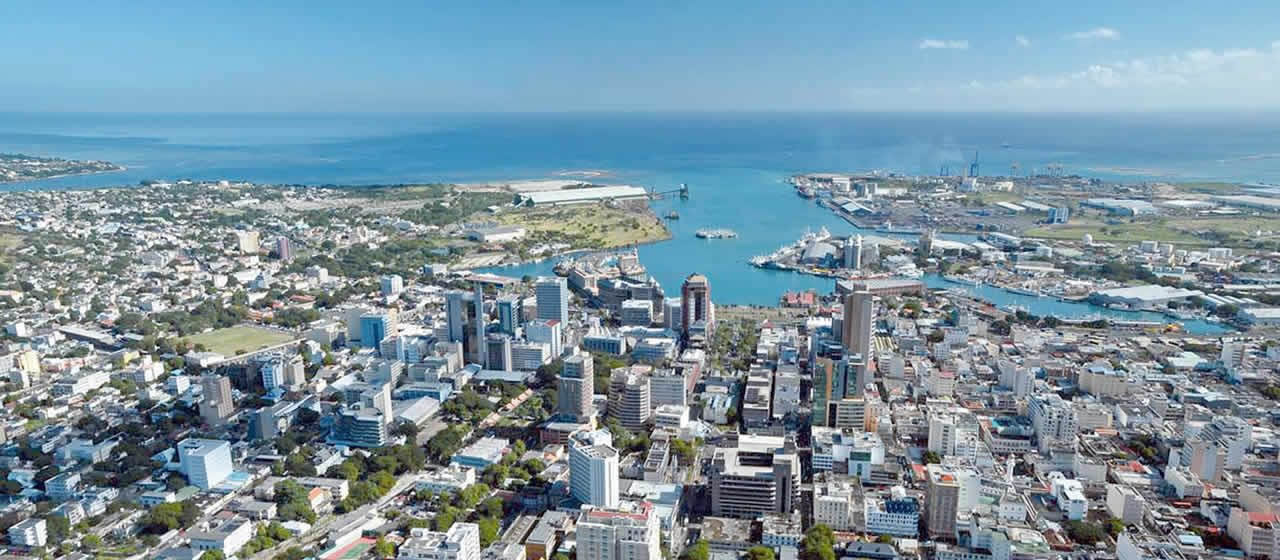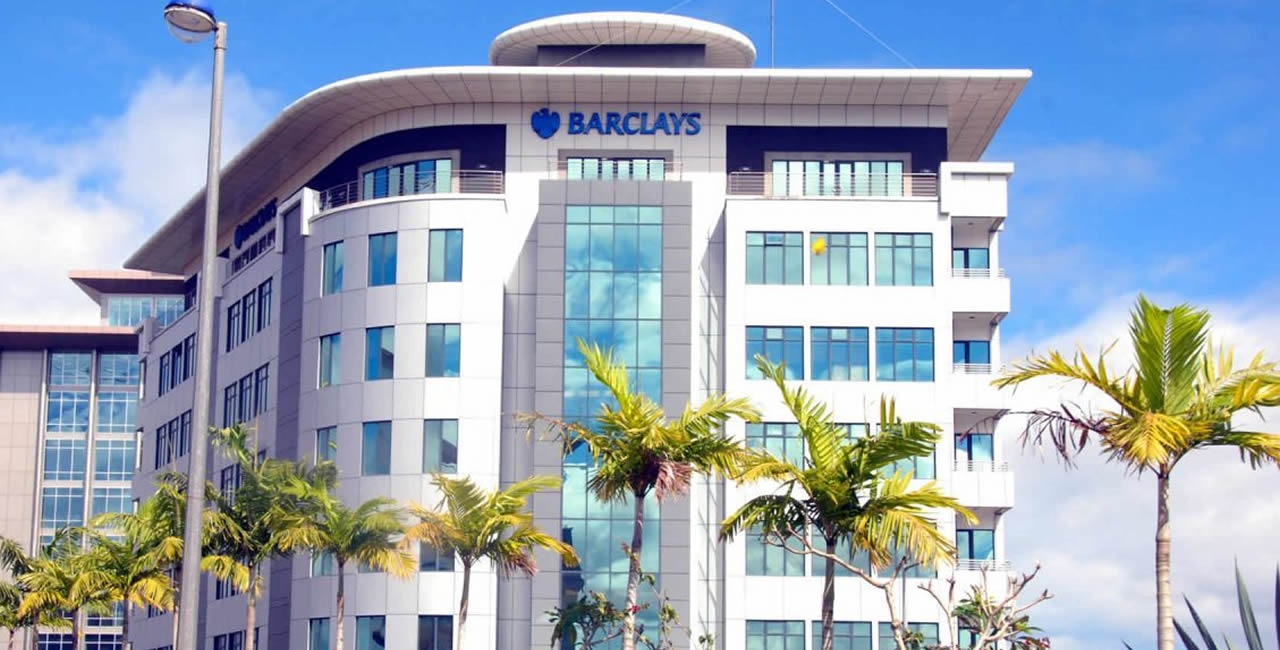
Mauritius’s financial space has been ranked fourth in the continent according to the 2018 Absa Africa Financial Markets Index (AFMI), which is now in its second edition. With this report, Mauritius is no longer considered as the second largest financial market in Africa. Mauritius got the lowest score of 18 out of 100 in the capacity of local investors. Why are we in such a situation?
In the overall ranking, Mauritius has lost two places and is behind South Africa, Botswana and Kenya. In this edition also, South Africa topped the rankings as the most advanced financial market in Africa, followed by Botswana, Kenya, Mauritius and Nigeria. Kenya, Morocco and Seychelles all improved in the rankings while Mauritius and Namibia slipped slightly.
According to the report, local investor capacity in many African countries is low with pension funds, insurance firms and other investors lacking sizeable Assets Under Management (AUM). It is also observed that Mauritius is among the countries whereby the ratio of institutional AUM to domestically listed assets is below 20% and this contributes to low demand for new products and results in small and relatively inactive local exchanges. However, the report resorts out that “Mauritius is a notable exception. There is a wide range of investment options and relatively ‘strong demand for more complex assets, including different types of derivatives products’, according to the exchange.”

Tahir Wahab, Chartered Accountant, explains that the Africa Financial Markets Index is a barometer measuring the progress and potential of Africa’s financial markets and a vital indicator that can be used by policy-makers and market participants to guide their efforts in building robust financial markets that can drive inclusive growth. “The scores in Pillar 4 track the capacity of local institutional investors (pension funds and insurance companies) according to their per capita assets under management (AUM) and the size of their AUM against the total value of domestic financial market assets, weighted by liquidity. Assets under management (AUM) is simply the total market value of assets that investment company or financial institution manages on behalf of investors.”
He argues that the relatively small size of local financial markets and the relative illiquidity of their assets have created difficulties for the growth and development of local investors. “Even though local investor assets have increased over the past decade, local financial markets have often not kept pace. Policy-makers must recognise that capital markets are as important as social and physical infrastructure but developing the financial markets infrastructure and attracting private capital in Mauritius will also offer opportunities for international and domestic investors to access fast growing African countries.”
He further states that domestic institutional investors across Mauritian and African markets, particularly pension funds, have become an important force in local economies. “Their assets have been boosted by improving pension and investment regulations. Private pension scheme in Mauritius shall not invest more than 70 per cent of the total value of its assets outside Mauritius and Regulations require pension funds and insurers to invest 30% of their assets domestically, which limit to some extent the ability of pension funds to play a critical role in supporting local investments through their ability to pool stable, long-term savings. Undoubted, local investors’ capacity has a crucial role on the financial markets and require a more complete asset market to meet their objectives. Asset shortages restrict investors’ choice and push them towards international markets.”
Why Mauritius?
One of the main reasons advanced for this decline is lack of expertise by Tahir Wahab. “Certainly, lack of expertise may hinder the development of new financial products, by reducing their willingness or ability to invest in more complex and ‘adventurous’ assets and strategies while pursuing stable returns and can create a risk-averse mindset among trustees and others towards the more complex instruments.”
Even though local investor assets have increased over the past decade, local financial markets have often not kept pace. Policy-makers must recognise that capital markets are as important as social and physical infrastructure."
Moreover, he believes that though local investors may not be having the necessary knowledge, there is the existence of international investment advisory services, which might have mitigated this lack of in-depth expertise among pension fund trustees and other asset owners as an obstacle to market development. “Additionally, pension fund administrators’ preference for traditional asset classes and lack of expertise of more complex asset classes and strategies among pension fund trustees and other local investors is one factor impeding the growth of financial markets and new financial products locally and is one of the major limiting factors. Another cause might be the low trading of corporate and sovereign bonds, despite large market size which can encompass the African Market.”
How to bounce back?
Firstly, it is argued by Tahir Wahab that Mauritius should innovate by encouraging infrastructure investment which yields potentially higher returns than traditional asset classes. “Infrastructure can broadly be categorised into economic infrastructure that is transport, renewable energy and telecommunications and social infrastructure for example, schools, prisons and hospitals). Economic infrastructure is more likely to generate commercial returns on investment and attract private finance. Social infrastructure, on the other hand, is required to meet social needs, which means that returns often do not cover costs. As a result, such investments typically are financed by the public sector.”
As Mauritius is a gateway to Africa, currently Africa is in dire need of investment in infrastructure, both to tackle its substantial infrastructure deficit and to stimulate stronger and more sustainable economic growth. Infrastructure investment has a number of advantages over more traditional asset classes, underlines the Chartered Accountant. “Apart from its clear socio-economic benefits, infrastructure investment by institutional investors has traditionally been very low. Only few financial instruments and funds have encouraged this activity. Moreover, it can serve as a good inflation hedge over the long term and, if the underlying projects are well conceived and executed, it can generate stable and predictable cash flows. Institutional investors, particularly pension funds and sovereign wealth funds, represent important sources of funds for this type of investment because of their relatively long-term investment horizons and their need to diversify and spread their risk.”

Mauritius now in possession of new tool to gauge its financial performance in the African region

Barclays Bank Mauritius is launching the Absa Africa Financial Markets Index (AFMI) 2018 today, Thursday 22 November 2018, in collaboration with the Official Monetary and Financial Institutions Forum (OMFIF) and the support of the Bank of Mauritius (BOM). This new Index, launched for the first time by a bank in Mauritius, is a premier indicator of the attractiveness of Africa’s financial markets, for use by governments, investors, businesses, and asset managers around the world. Mauritius has outperformed many countries in the region, positioning itself as the 4th country in the Index.
Policy-makers, regulators, investors and other participants in the market can now use this tool to identify the areas and initiatives which will drive the most significant improvements. In this report, Mauritius is equally encouraged to elevate its foreign exchange market to boost accessibility and economic development. “Mauritius is seen as having a strong regulatory and legal framework and the placement on the Index is one that should spur us to move forward,” declares Ravin Dajee, Managing Director of Barclays Bank Mauritius. He strongly believes that combined efforts of all the players in the financial industry will contribute towards the greater development of not just the financial market and the economy of Mauritius, but also the economy of the African continent.
“In our transition towards Absa, our banking institution is now more focused on the opportunities on the African continent. Africa is one of the major players in the current global economy and represents high investing potentials. With the AFMI, we now aim at better positioning ourselves on the market so as to open doors for our local investors to ensure their sustainable growth that shall benefit the country’s economy,” adds Ravin Dajee. With Absa, Barclays Bank Mauritius is already navigating its destiny as an African organisation, positioning itself as a pan-African bank of choice in the region, and offering fresh opportunities for its customers.
Mauritius is now seen as a jurisdiction that attracts quality global investments, which in turn reach the African continent. “We are comfortable with how Mauritius currently stands in regard to the report and we are confident that, should we keep on this track, Mauritius is likely to gain even more momentum when it comes to its participation in how the African continent can identify and capitalise across the various economic opportunities that are open to us,” adds Vishal Joyram, Head of Global Markets at Barclays Bank Mauritius.
Maria Ramos, Chief Executive Officer of Absa Group, on her side, highlights that the development of well regulated, deep and liquid financial markets is a key priority that should be at the top of Africa’s development agenda. She explains that the index facilitates a meaningful debate about the maturity and accessibility of Africa’s financial markets. The overall note of the report is that countries are progressing with policies that support the development of financial markets across the continent. South Africa’s ‘twin peaks’ strategy for improving financial regulation and Mozambique’s ‘financial sector development strategy’ stand out among the frameworks introduced over the past year. Such initiatives have boosted performance for the index as a whole.
Deokumar Bhekharee : “Mauritius needs reforms to have a better score”
 Financial Client Advisor Deokumar Bhekharee reveals that domestic institutional investors across Africa, particularly pension funds, are an important part of the financial landscape. “Better design, implementation and regulation of savings institutions have increased population coverage and created new vehicles for citizens to access capital markets. Policies to bolster financial inclusion have increased the size of assets held by local investors, creating opportunities to develop financial products and enhance liquidity. The setting up of the Financial Services Commission, under the Securities Act 2005, has increased population coverage and fostering confidence among citizens and foreigners to access capital markets.
Financial Client Advisor Deokumar Bhekharee reveals that domestic institutional investors across Africa, particularly pension funds, are an important part of the financial landscape. “Better design, implementation and regulation of savings institutions have increased population coverage and created new vehicles for citizens to access capital markets. Policies to bolster financial inclusion have increased the size of assets held by local investors, creating opportunities to develop financial products and enhance liquidity. The setting up of the Financial Services Commission, under the Securities Act 2005, has increased population coverage and fostering confidence among citizens and foreigners to access capital markets.
Financial inclusion initiatives have increased the size of assets held by local investors, creating opportunities to develop financial products and enhance liquidity. The report, however, mentioned that Mauritius needs reforms to have a better score in the future.”
According to him, educational strategies, as well as improved pension and investment regulations over the last decade, have boosted the assets of local institutional investors. “Unfortunately, weak commodity prices and currencies depreciations against the rising dollar, euro and unstable pound have reversely impacted this trend. Under diversification strategy of pension funds, Mauritius took the lead. The scores in Pillar 4 track the capacity of local institutional investors (pension and insurance companies) according to their per capita assets under management and the size of their assets under management (AUM) against the total value of domestic financial market assets, weighted by liquidity.”
Local investor capacity in countries like Mauritius is low, with pension funds, insurance firms and other investors lacking sizeable AUM, he adds. “The fragmented income tax legislation in Mauritius and nearly no incentive towards long term savings humped further, the local investor AUM. Further, the actual regulators’ piecemeal methods of implementation of serious legal framework hinders growth. Energies are spending in correcting compliance issue than strengthening capital market diversification. New products in the pension sectors are high in demand but fewer institutions opt for risk associated portfolios.”
 J'aime
J'aime














